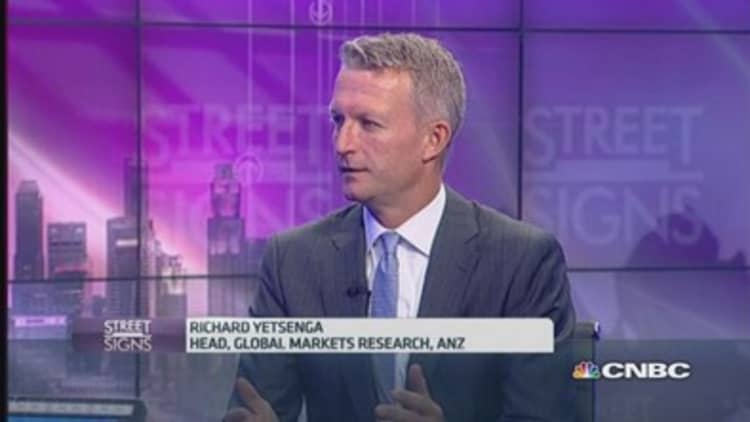
China's manufacturing sector was in a poor state in January, a private survey confirmed on Monday, amid increasing speculation that policymakers will intervene with fresh measures to spur the economy.
The final HSBC Purchasing Managers' Index (PMI) fell to 49.7, a touch below its 49.8 flash reading, and after dipping to 49.6 in December. A reading below 50 indicates contraction.
China's benchmark Shanghai Composite index widened losses to more than 2 percent on the news, hitting a near two-week low. Meanwhile, Hong Kong shares and the Australian dollar were little changed.
"Chinese manufacturers saw a fractional deterioration in operating conditions at the start of 2015. Although output rose slightly and new orders broadly stabilized, staffing levels were cut for the fifteenth successive month," analysts at HSBC said.
"Meanwhile, relatively subdued client demand led companies to reduce their stock holdings of both post- and pre-production goods in January," they added.
The data came a day after the government's official PMI for January also dipped into contractionary territory for the first time in two and the half years, coming in at 49.8 and surprising market watchers who were expecting expansion.
Analysts have been penciling in further action from the People's Bank of China (PBOC); the central bank in November surprised markets with an interest rate cut, its first since 2012.
"Yesterday (Sunday) saw China logging its first manufacturing PMI contraction in over two years. Of particular concern, is that the employment sub-component is at its lowest level since February 2013 - as are new exports," said Evan Lucas of IG Markets.
"The People's Bank of China won't be happy with the employment component and may look to continue its targeted measures of the past year to increase employment – this prospect may cause positive speculation in markets for more stimulus," he added.
China's economy has been battling sagging domestic demand, a weak property sector and volatile exports, even as it registered a 7.4 percent growth in 2014, its slowest pace in 24 years. Analysts project growth to fall to 7 percent this year.
Richard Yetsenga, head of global markets research at ANZ, expects new stimulus as soon as next month.
"You probably get a combination of rate cuts and RRR (reserve requirement ratio) cuts. There's a lot of liquidity locked up in RRR so that's where the real juice is. For interest rate cuts, they clearly want to move the economy and financial system to a more market-determined system - interest rate adjustments is inherent to that system. Not this month, maybe late Q1 or Q2," he said.

